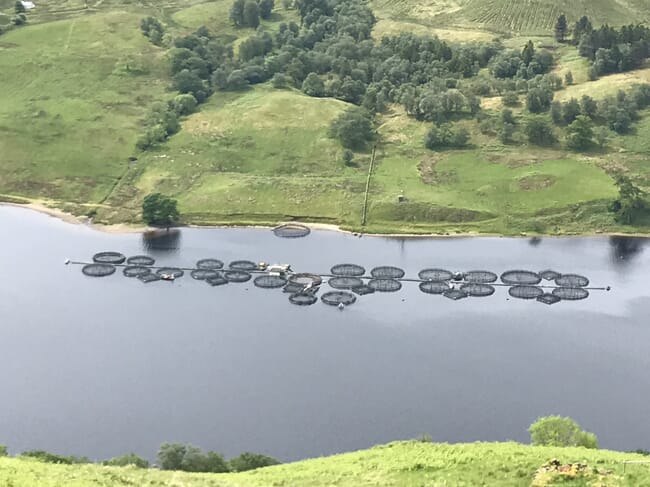The industry now supports more than 12,000 jobs, while production has increased by a third – from 142,000 to 188,000 tonnes – between 2006 and 2015, according to the Scottish Government and Highlands and Islands Enterprise (HIE) commissioned study.
Atlantic salmon production accounts for 90% of all economic impact, supporting 10,340 full-time equivalent jobs and generating £540 million in gross value added (GVA). The contribution of other fish and shellfish species like trout, mussels and oysters is also considered as part of the study.
Commenting on the publication Fergus Ewing, Scotland’s Cabinet Secretary for the Rural Economy, said: “These figures are good news for Scottish aquaculture and show the significant social contributions the industry makes to remote rural, island and coastal areas by supporting high-skilled jobs, diversifying and protecting communities.
“This research will inform how we continue to grow the industry in a sustainable way, including through the work of the Aquaculture Industry Leadership Group.”

© Rob Fletcher
Charlotte Wright, Chief Executive at HIE, said: “HIE has supported the aquaculture industry since its inception and we are pleased to have led on this research along with Marine Scotland. This vitally important industry, including the supply chain, provides much needed job opportunities across Scotland. The report underlines how important these jobs are for rural communities and it also shows that the benefits are felt right across Scotland.
“We welcome the report’s findings which both highlight the significant growth opportunities, and confirm the challenges that must be overcome to realise industry ambitions. The research shows that there is capacity for growth in the industry and we look forward to working with them to achieve this.”
Stewart Graham, co-chair of the Aquaculture Industry Leadership Group, said: “We are delighted that this new and updated report confirms that the economic and social impact of aquaculture in Scotland is even greater than previous reports had shown, with 12,000 jobs currently dependent on the sector.
“The report also confirms that the opportunities which need to be grasped and the challenges which need to be overcome as set out in our 2030 industry strategy have been clearly identified and I am confident that with full stakeholder alignment and collaboration we will deliver on our ambitious growth targets.”




